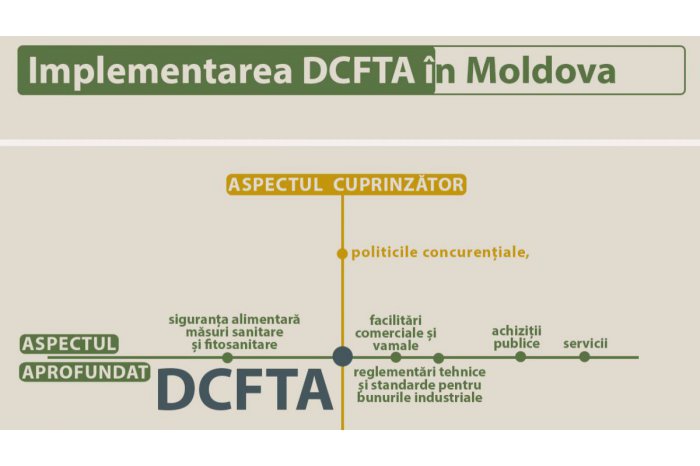DCFTA net effect on exports estimated at about 410 million dollars
13:07 | 13.11.2018 Category: Economic
Chisinau, 13 November /MOLDPRES/- The DCFTA net effect on the total exports of Moldova is estimated at about 410 million dollars for 2015-2017, according to the Expert-Grup centre in the publication "Economic Impact after 4 years of implementation of the Moldova-EU Association Agreement ".
Experts also estimate that over the same period, total exports to the EU market rose almost twice, by about 746 million dollars. Therefore, half of the increase in exports to the EU in 2015-2017 was exclusively due to the DCFTA, "a noticeable effect", given that the estimate takes place only four years after the formation of the Free Trade Area and which "confirms benefits of liberalization of trade with the Community space ".
The EU share in Moldovan exports increased from 53.3 percent in 2014 to 65.8 percent in 2017. The trend continued in 2018: after the first half of the year, exports to the EU increased by 38.1% against the same period of the last year, the European market accounting for 68.5 percent of Moldova's exports. It is important to note that this evolution took place on a rather difficult economic and political background, which prevented an even more pronounced advance of EU exports: the political crisis, sanctions and reciprocal restrictions imposed by the EU and the Russian Federation, the appreciation of the dollar at international markets, unfavorable climatic conditions and declining international prices for some products, economists say.
Contrary to fears about the negative impact of DCFTA on the agri-food sector, the biggest benefits of liberalization of trade with the EU were recorded in the case of exports of agri-food products, according to the publication. Thus, exports of agro-food products grew by 44 percent and those of industrial products by 11 percent.
These developments can be explained by the rather high level of liberalization of trade in industrial products up to DCFTA, which has produced more marginal effects on agri-food exports, as well as the reorientation of many exporters from the CIS market to the EU.
Expert-Grup notes a certain increase in the competitiveness of agrifood exporters in the EU market. The most impressive increases were registered in Romania, which is also the most important outlet for Moldova in the world, including the EU. In addition, a shift in exports from the CIS countries to the EU can be noticed, especially in the case of sunflower, wine and fruit seeds. This reorientation was due, on the one hand, to the restrictions imposed by the Russian Federation and, on the other hand, to the new opportunities offered by the DCFTA.
According to the National Statistics Bureau, exports of goods to EU countries increased by 27.9 percent, in nine months 2018, to 1363.9 million dollars and reached a share of 69.6 percent in exports.
(Reporter V. Bercu, editor A. Răileanu)

